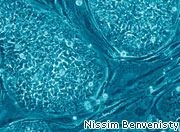Scientists have used adult stem cells to make a breakthrough in understanding dementia which could lead to developing drugs to treat the condition.
Researchers from Belgium ‘reprogrammed’ skin cells from three dementia patients into Induced Pluripotent Stem Cells (iPSCs), which have the potential to become any kind of body tissue.
IPSCs do not involve the destruction of embryos, but mimic stem cells taken from early-stage embryos.
Treatment
These reprogrammed cells revealed a signalling pathway linked to a form of dementia that accounts for roughly half of all cases before the age of 60.
The pathway was suppressed through treatment with a drug, resulting in affected neurons being able to develop normally.
Dr Catherine Verfaillie of the University of Leuven in Belgium co-authored the study.
Understand dementia
She said: “IPSC models can now be used to better understand dementia, and in particular frontotemporal dementia, and might lead to the development of drugs that can curtail or slow down the degeneration of cortical neurons.”
The findings were reported in the journal Stem Cell Reports.
This research adds to an increasing body of evidence about the effectiveness of using ethical stem cells.
Potential
Last year, researchers at universities in the UK and Japan praised the potential of three adult stem cell techniques for helping people with age-related macular degeneration (AMD) and osteoporosis.
A team of scientists at the University of Southampton discovered special stem cells in the human eye which can be altered to pick up light.
Professor Andrew Lotery, a Consultant Ophthalmologist at Southampton General Hospital, said: “These cells are readily accessible, and they have surprising plasticity, which makes them an attractive cell resource for future therapies”.



